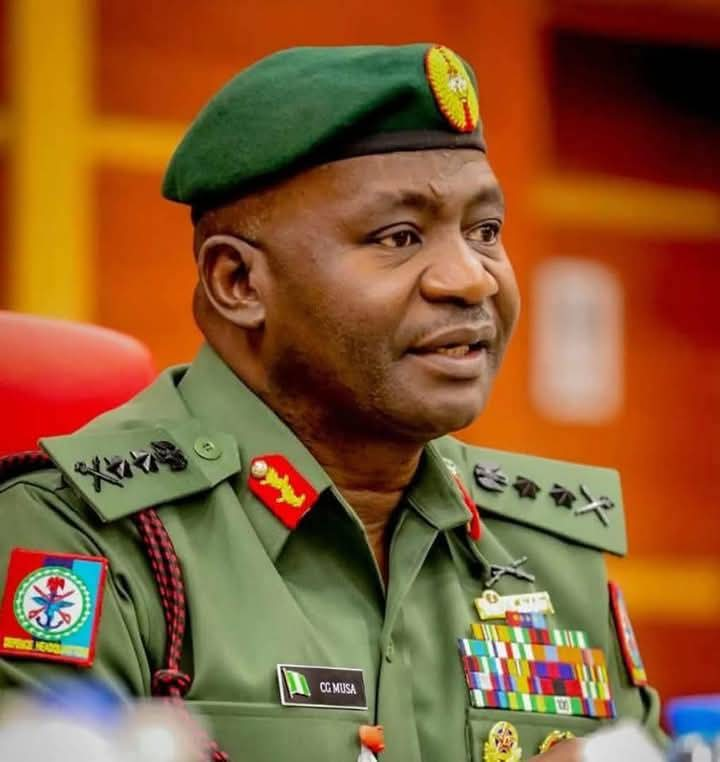By; AUSTINE AGBO EMMANUEL, Kaduna Stakeholders across civil society, religious institutions and security advocacy groups have condemne
By; AUSTINE AGBO EMMANUEL, Kaduna
Stakeholders across civil society, religious institutions and security advocacy groups have condemned a recent publication by Emmanuel Onwubiko targeting the Chief of Defence Staff (CDS), General Christopher Gwabin Musa, describing it as a dangerous cocktail of misinformation, ethnic prejudice, and propaganda capable of undermining national security.
The article, titled, “Oga CDS, You Failed in Two Years”, which has circulated widely on digital platforms, drew sharp criticism from the Citizens Network for National Security (CNNS) and allied groups, who described it as a deliberate attempt to misrepresent the achievements of the CDS and weaken the morale of Nigeria’s armed forces.
Speaking on behalf of the Tinubu-Uba Leadership Network (TULN) and CNNS, Hon. Victor Mathew Bobai, Senior Special Assistant on Public Affairs to the Kaduna State Governor, described the article as “a calculated effort to delegitimise the patriotic contributions of a tested and committed officer in the fight against insecurity.”
Bobai, who hails from the same Southern Kaduna region as the Defence Chief, warned that the article’s framing betrayed a pattern of selective outrage and ethnic profiling. He noted that the author’s known associations with foreign-based agitators under investigation for subversive activities should concern all Nigerians.
“This is not constructive criticism. It is a deliberate attempt to embolden the narratives of individuals with anti-state motives. The persistent targeting of Northern military officers raises critical questions about the motivations behind these attacks,” Bobai said.
Clerics and civil society leaders also joined in the condemnation. Rev. Fr. Mike Lawrence of the Justice Development and Peace Commission (JDPC) cautioned against weaponising journalism to attack individuals serving at the frontlines of national defence. He acknowledged that while no public official is beyond scrutiny, the Defence Chief’s record reflects notable impact in national security coordination and operational reforms.
In the same vein, Kaduna-based Islamic cleric and CNNS member, Imam Yunusa Ibrahim Kareem, emphasised that national security should not be reduced to polemics. He cited the successful rescue of over 13,000 kidnapped citizens, the dismantling of multiple terror camps, and the rollout of internationally recognised deradicalisation models as part of General Musa’s legacy.
Adeosun Olayinka, a youth leader from the Arewa Concerned Citizens Forum, faulted the silence of critics like Onwubiko on attacks perpetrated by secessionist elements. He argued that Onwubiko’s publications appear to sidestep the crimes of groups like IPOB while focusing disproportionately on the military’s actions.
“We are yet to see the same level of energy used to condemn the murder of soldiers in Aba or the repeated attacks on INEC facilities in the South-East. The selective criticism speaks volumes,” Olayinka said.
He further pointed to figures from the Global Terrorism Index (GTI), which show a drastic reduction in terrorism-related fatalities from 2,101 in 2014 to 392 in 2022. While there have been moderate increases in subsequent years, the numbers remain well below past peaks.
Stakeholders also responded to criticisms over the N3.782 trillion defence budget, arguing that it covers salaries, logistics, intelligence gathering, drone operations, and welfare for over 700,000 personnel across the military, police and paramilitary services. Comparatively, countries such as Pakistan and Egypt spend more than twice that amount while facing less complex security challenges.
Adeyemi Abraham, a CNNS member, noted that Nigeria’s military spending remains within reasonable bounds and has yielded visible results under the current leadership. He highlighted successful operations under the Multi-National Joint Task Force (MNJTF), including Operation Hadin Kai and Desert Sanity II, which led to the neutralisation of over 1,400 insurgents and interception of hundreds of foreign-trained fighters.
General Musa has also been credited with restructuring the military’s public relations strategy, fostering joint intelligence coordination, and rebuilding community trust in conflict-prone regions.
For Rev. Fr. Lawrence, these actions are far from the markings of failure. “No leader is beyond reproach, but let us not allow the pen to become a weapon against our defenders,” he said.
Stakeholders maintain that while public scrutiny is essential in a democracy, it must be rooted in truth and fairness. They warned that publications laced with disinformation and veiled agendas pose a greater threat to national unity and security.
“We must stand for facts, not propaganda. We stand with our troops, and we stand with the truth,” said Imam Kareem.
As security challenges continue to evolve, observers say what Nigeria needs most is unity of purpose, responsible commentary, and an unwavering commitment to the nation’s collective safety and cohesion.




COMMENTS